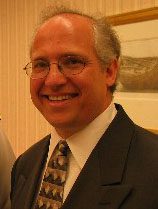 The University of Vermont College of Medicine’s Committee for the Program in Integrative Health (PIH) recently had the pleasure of hosting Dr. Avaid Haramati from Georgetown Medical School. Adi, as he was affectionately called, talked about the course he has implemented for first and second year medical students at Georgetown teaching them a variety of self-regulation techniques, including mindfulness meditation.
The University of Vermont College of Medicine’s Committee for the Program in Integrative Health (PIH) recently had the pleasure of hosting Dr. Avaid Haramati from Georgetown Medical School. Adi, as he was affectionately called, talked about the course he has implemented for first and second year medical students at Georgetown teaching them a variety of self-regulation techniques, including mindfulness meditation.
Dr. Haramati is an award winning professor of renal physiology and about twelve years ago he became interested in student well-being. In his talk, he pointed out that every medical school has the goal of graduating students who are more self-aware, empathetic, and compassionate but few provide any mechanism for insuring that their students come out that way. In fact, studies show that empathy consistently declines and burnout increases through the four years of medical school. Something had to be done to offset that tendency.
Dr. Haramati developed a course designed to foster student self-awareness through safe, open dialogue with fellow students and faculty facilitators. These small groups of ten students and two faculty learn a different mind-body technique each week in the course that include mindfulness, biofeedback, autogenic training, and guided imagery. The approach is straightforward and beneficial. His research has demonstrated that students who take the course reverse the trend of declining empathy and increasing stress through medical school.
What’s the message here for people other than medical students? Medicine is not the only stressful profession. And self-care is not just critical for medical students. We can all benefit from mind-body techniques such as mindfulness. Dr. Haramati put this self-care pursuit in the context of the stress response. The stress response is well equipped for handling acute stressors where we deal with a crisis and then the system shuts down. Things go awry when stressors are chronic. The challenge we face is that stress can arise simply through our imaginations. Therefore, we must learn to be more self-aware so that we can regulate our stress levels.
The members of the PIH were all inspired by Adi’s visit. His knowledge, warmth, and humor were infectious. There is a revolution taking hold within medicine, where the whole person is considered and the mind is included. Mindfulness will continue to play a prominent role in this revolution. I am proud and honored to be part of the PIH and to have the opportunity to bring mindfulness training to the students at UVM College of Medicine.
Read the UVM College of Medicine strory on Dr. Haramati, click here. To see Dr. Haramati’s work at Georgetown, follow this link.

